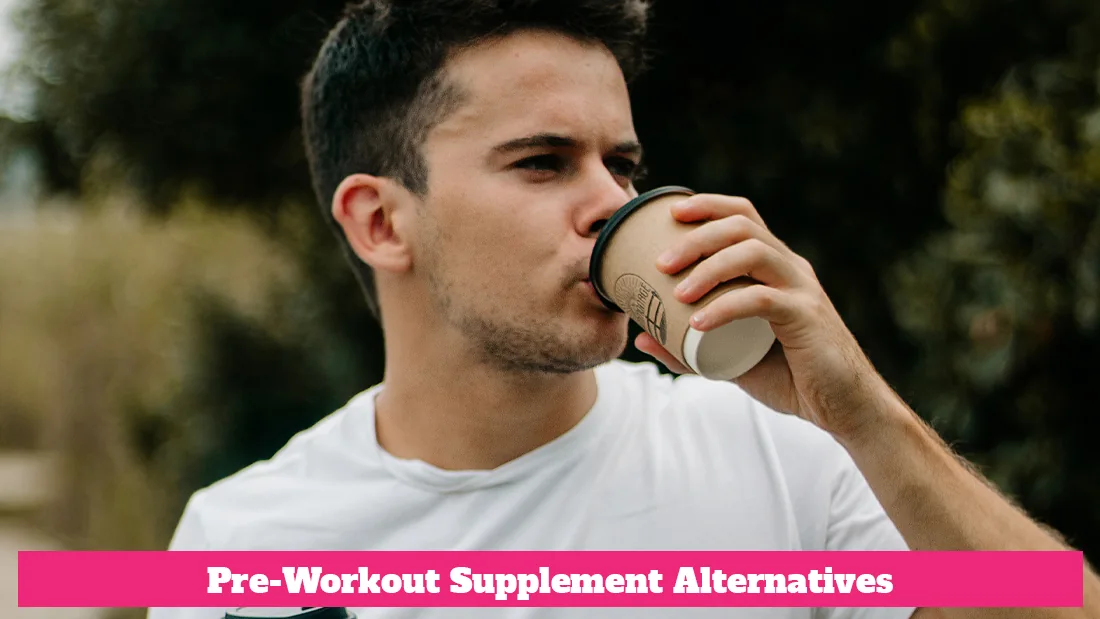Long distance running is a test of endurance, requiring a great deal of physical and mental stamina. Runners must be able to power through long distances, maintain their pace, and avoid hitting the proverbial "wall" before reaching the finish line. Pre-workout supplements have become increasingly popular in recent years as a means of enhancing performance, and long distance runners are no exception.
In this blog post, we'll explore the benefits of pre workout for long distance running and how they can help boost your endurance. We'll discuss the various types of pre-workout supplements available, such as caffeine, beta-alanine, and creatine, and how they can help improve your performance. We'll also explore the potential downsides of these supplements, including negative side effects and potential interactions with other medications or supplements.
If you're a long distance runner looking to take your performance to the next level, then read on to discover how pre-workout supplements can help you reach your goals. We'll provide you with all the information you need to make an informed decision about whether pre-workout supplements are right for you, and how to choose the best one for your needs. So lace up your shoes and let's hit the ground running!
Read about: Can You Take Pre Workout Before A Run
What Are Pre-Workout Supplements?
Pre-workout supplements are a type of dietary supplement that are taken before a workout or training session with the goal of enhancing athletic performance. These supplements halotestin typically contain a blend of ingredients such as caffeine, amino acids, creatine, and nitric oxide boosters, which are thought to improve energy, endurance, focus, and overall athletic performance.
Pre-workout supplements are available in a variety of forms, including powders, pills, and drinks, and are often marketed as a way to improve strength, power, and endurance during high-intensity workouts. They may also claim to help with muscle building, fat burning, and recovery time.
It's important to note that pre-workout supplements are not regulated by the FDA, which means that their safety and efficacy have not been thoroughly tested. As such, it's important to research and carefully consider any pre-workout supplement before incorporating it into your exercise routine. It's also a good idea to consult with a healthcare professional or certified sports nutritionist to determine if pre-workout supplements are appropriate for you, and to discuss potential risks or side effects.
Benefits of Pre Workout for Long Distance Running

Pre-workout supplements can offer a variety of benefits for long distance runners, including:
- Improved Endurance: One of the most significant benefits of pre-workout supplements for long distance running is improved endurance. Many pre-workout supplements contain ingredients such as beta-alanine, which can help delay fatigue and improve endurance during exercise.
- Increased Energy and Focus: Pre-workout supplements often contain caffeine, which can help increase energy and focus during workouts. This can be particularly beneficial for long distance runners who may experience mental fatigue and a decrease in focus during extended periods of exercise.
- Delayed Fatigue: Pre-workout supplements may help delay the onset of fatigue by reducing the buildup of lactic acid in the muscles. This can help runners maintain their pace and avoid hitting the "wall" during long distance runs.
- Boosted Oxygen Uptake: Some pre-workout supplements contain nitric oxide boosters, which can help improve blood flow and oxygen uptake during exercise. This can help improve endurance and delay fatigue.
Overall, pre-workout supplements can be an effective tool for long distance runners looking to improve their performance and endurance. However, it's important to carefully research and consider any supplement before incorporating it into your routine, and to consult with a healthcare professional or certified sports nutritionist if you have any concerns or questions.
Common Pre-Workout Supplement Ingredients
There are primobolan several common ingredients found in pre-workout supplements that are believed to improve athletic performance. Here are some of the most commonly used ingredients:
- Caffeine: A stimulant that is commonly found in coffee and tea, caffeine is often included in pre-workout supplements to increase energy, focus, and alertness during exercise.
- Beta-Alanine: An amino acid that is naturally produced in the body, beta-alanine is often included in pre-workout supplements to improve endurance and delay fatigue.
- Creatine: A compound that is naturally found in the body, creatine is often included in pre-workout supplements to improve strength and power during high-intensity exercise.
- Nitric Oxide Boosters: These supplements are believed to improve blood flow and oxygen delivery to the muscles, which can help improve endurance and delay fatigue.
- BCAAs: Branched-chain amino acids (BCAAs) are essential amino acids that are important for muscle growth and repair. They are often included in pre-workout supplements to help reduce muscle breakdown during exercise and improve recovery time.
- Citrulline: An amino acid that is believed to improve blood flow and nitric oxide production, citrulline is often included in pre-workout supplements to improve endurance and delay fatigue.
It's important to note that the effectiveness and safety of these ingredients can vary depending on the dosage and the individual's unique health status. It's always a good idea to research and consult with a healthcare professional or certified sports nutritionist before incorporating any pre-workout supplement into your routine.
Choosing the Right Pre-Workout Supplement

Choosing the right pre-workout supplement can be a challenging task, as there are many different options available on the market. Here are some factors to consider when choosing a pre-workout supplement:
- Your Fitness Goals: Consider your fitness goals when selecting a pre-workout supplement. If you are looking to improve endurance, for example, you may want to choose a supplement that contains beta-alanine. If you are looking to increase strength and power, you may want to choose a supplement that contains creatine.
- The Ingredients: Always read the ingredient label carefully before purchasing a pre-workout supplement. Look for supplements that contain high-quality ingredients that are backed by scientific research. Avoid supplements that contain ingredients that are potentially harmful or have not been thoroughly tested.
- The Dosage: Be sure to follow the recommended dosage guidelines for the pre-workout supplement you choose. Taking too much of a supplement can lead to negative side effects, while taking too little may not provide the desired benefits.
- The Brand Reputation: Look for pre-workout supplements from reputable brands that have a track record of producing high-quality products. Research the brand's history, customer reviews, and certifications to ensure that you are purchasing a safe and effective product.
- Your Health Status: Consider your unique health status when choosing a pre-workout supplement. If you have any underlying health conditions or take medications, consult with a healthcare professional before incorporating a pre-workout supplement into your routine.
Overall, choosing the right pre-workout supplement requires careful research and consideration. It's important to take your fitness goals, ingredient quality, dosage, brand reputation, and health status into account when selecting a supplement that is safe and effective for you.
Potential Risks and Side Effects
While pre-workout supplements can offer a variety of benefits, they may also come with potential risks and side effects. Here are some of the most commonly reported negative effects of pre-workout supplements:
- Caffeine Overdose: Pre-workout supplements that contain high doses of caffeine can cause caffeine overdose. Symptoms may include increased heart rate, anxiety, insomnia, nausea, and headaches.
- Digestive Issues: Some pre-workout supplements contain ingredients that can cause digestive issues, such as bloating, gas, diarrhea, and stomach cramps.
- Dehydration: Pre-workout supplements that contain diuretics, such as caffeine, can cause dehydration. This can lead to symptoms such as dry mouth, thirst, dizziness, and headaches.
- High Blood Pressure: Pre-workout supplements that contain stimulants can increase blood pressure, which can be dangerous for individuals with hypertension or other cardiovascular conditions.
- Allergic Reactions: Some individuals may be allergic to certain ingredients in pre-workout supplements, which can cause symptoms such as rash, hives, itching, and difficulty breathing.
- Negative Interactions: Pre-workout supplements can interact with certain medications or supplements, which can increase the risk of negative side effects.
It's important to carefully research and consider any pre-workout supplement before incorporating it into your exercise routine. Always follow the recommended dosage guidelines and consult with a healthcare professional or certified sports nutritionist if you have any concerns or questions.
Pre-Workout Supplement Alternatives

While pre-workout supplements can be a convenient and effective way to enhance athletic performance, there are also several natural alternatives that can help improve energy, endurance, and overall fitness. Here are some pre-workout supplement alternatives to consider:
- Whole Foods: Eating a balanced meal of whole foods before a workout can provide a steady source of energy and nutrients to fuel exercise. Good options include complex carbohydrates, lean protein, and healthy fats.
- Caffeine from Natural Sources: Instead of relying on pre-workout supplements for a caffeine boost, consider getting caffeine from natural sources such as coffee, tea, or green tea. These can provide the energy and focus needed for a workout without the added risks and side effects of high-dose caffeine supplements.
- Beetroot Juice: Beetroot juice is a natural source of nitrates, which can improve blood flow and oxygen uptake during exercise. Drinking beetroot juice before a workout may improve endurance and delay fatigue.
- Tart Cherry Juice: Tart cherry juice is a natural anti-inflammatory that can help reduce muscle soreness and improve recovery time after exercise.
- Water and Electrolytes: Proper hydration is essential for athletic performance, so be sure to drink plenty of water before, during, and after exercise. Adding electrolytes, such as sodium and potassium, to your water can help replace essential minerals lost during sweating.
- Proper Rest and Recovery: Getting enough sleep and allowing adequate time for rest and recovery is essential for optimal athletic performance. Be sure to prioritize rest and recovery time, as well as proper nutrition and hydration.
Overall, incorporating natural alternatives into your pre-workout routine can help improve athletic performance without the added risks and side effects of pre-workout supplements. As always, consult with a healthcare professional or certified sports nutritionist before making any changes to your exercise or nutrition routine.
Conclusion
In conclusion, pre-workout supplements can be an effective tool for long distance runners looking to improve their performance and endurance. However, it's important to carefully research and consider any supplement before incorporating it into your routine. Always follow the recommended dosage guidelines, and be aware of the potential risks and side effects associated with pre-workout supplements.
There are also natural alternatives to pre-workout supplements that can provide similar benefits without the added risks. Eating a balanced meal of whole foods, getting caffeine from natural sources, and staying properly hydrated with water and electrolytes are all effective ways to improve athletic performance. Proper rest and recovery time is also essential for achieving optimal athletic performance.
Ultimately, it's important to listen to your body and make informed decisions about your pre-workout routine based on your unique needs and goals. Consult with a healthcare professional or certified sports nutritionist to determine the best approach for you, and always prioritize safety and efficacy in your exercise and nutrition regimen.